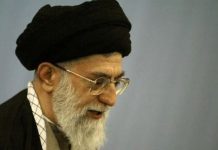PUC hosts Convention for Pakistan Accord, calls for unity amongst stakeholders
Emphasis on political stability: Ulema, Mashaykh stress link with economic prosperity
Electoral disputes resolution: Ulema, Mashaykh urge impartial role of ECP, judiciary
Pakistan Accord: Pathway to national unity, prosperity; say religious scholars, leaders
ISLAMABAD: Feb 21: /DNA/ – Religious scholars and leaders on Wednesday urged political parties to forge a national accord requiring collective efforts to steer clear from any crisis.
This call was made during the “Convention for Pakistan Accord’ held here under the auspicious of Pakistan Ulema Council (PUC) under the visionary leadership of Chairman Hafiz Muhammad Tahir Mahmood Ashrafi, seeing the participation of religious scholars and leaders from various schools of thought.
They emphasized the necessity for all stakeholders, including the Pakistan Armed forces, judiciary, and all political and religious factions, to come together and formulate a covenant for the betterment of the nation. This covenant, named the Pakistan Accord, should outline the trajectory for the country’s next 25 years, they added.
In their joint declaration, they highlighted that political parties must accept each other’s mandate and resort to the Constitution and law to resolve electoral disputes. They urged Election Commission of Pakistan (ECP) and judiciary to play impartial roles into the matter.
Ulema and Mashaykh emphasized that economic stability was intricately linked with political stability, and without the latter, the former could not be achieved. They pointed out that Pakistan faces several challenges, and addressing them requires cooperation from all democratic societies.
They stressed that all parties should accept the results of general elections and work together to resolve the country’s pressing issues. However, they raised the concerns regarding the dissatisfaction expressed by certain political parties over the results of the elections held on February 8.
Regarding electoral results, they reiterated that parties with doubts and suspicions should adhere to the Constitution and law, and the ECP should promptly address their concerns. It was deemed unacceptable to push the country towards unrest under any circumstances, they said adding that the ECP and judiciary should play impartial roles in resolving electoral disputes to ensure the satisfaction of all parties.
The religious scholars and leaders emphasized the importance of fostering an environment of tolerance and mutual respect among all political parties, aiming to eliminate past animosities and give each other due space to end intolerance in the country.
They stated that the Pakistan Armed forces, judiciary, and all political and religious groups should sit together and unite under a comprehensive Pakistan Accord. They said it should outline a unified plan for steering beloved country for the next 25 years, addressing both internal and external challenges and finding effective solutions for economic crisis and combating extremism, terrorism, and youth radicalization.
Furthermore, they proposed that Pakistan’s foreign policy, along with improving relations with friendly countries, should also focus on alleviating poverty and unemployment through a plan for youth rehabilitation, aiming to eliminate extremism and terrorism.
They concluded by asserting that all stakeholders must come together to formulate a consensus policy, which should be declared a national policy, and any government, irrespective of its origin, should accept it in a coherent manner. “The path we stand on today is the right path, and any experimentation with the situation will only lead to serious consequences,” they opined.
They, applauding services of the Pakistan Army and security agencies in maintaining peace and security during the general elections, attributed their efforts to be commendable and praiseworthy.

















